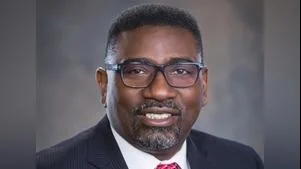Timothy W. Carpenter, Wisconsin State Senator for 3rd District | Official website
Timothy W. Carpenter, Wisconsin State Senator for 3rd District | Official website
According to the Wisconsin State Legislature's official website, the bill was described as follows: "payment for school medical services. (FE)".
The following is our breakdown, based on the actual bill text, and may include interpretation to clarify its provisions.
In essence, the bill amends Wisconsin statutes to require the Department of Health Services (DHS) to increase reimbursements for school medical services and administrative costs provided by school districts, cooperative educational service agencies, and specific state programs. Previously, DHS reimbursed 60% of the federal share for allowable charges and 90% for administrative costs. The bill changes the reimbursement rate to 100% for both categories. The change applies to services provided by the Wisconsin Center for the Blind and Visually Impaired and the Wisconsin Educational Services Program for the Deaf and Hard of Hearing, aiming to fully cover federal share costs. This change will become effective upon passage.
The bill was co-authored by Representative Robyn Vining (Democrat-13th District), Senator Dora E. Drake (Democrat-4th District), Senator Dianne H. Hesselbein (Democrat-27th District), Senator Sarah Keyeski (Democrat-14th District), and Senator Chris Larson (Democrat-7th District). It was co-sponsored by Representative Clinton M. Anderson (Democrat-45th District), Representative Margaret Arney (Democrat-18th District), and Representative Mike Bare (Democrat-80th District), along with 33 other co-sponsors.
Tim Carpenter has authored or co-authored another 58 bills since the beginning of the 2025 session, with all of them being adopted.
Carpenter graduated from the University of Wisconsin-Milwaukee in 1982 with a BA.
Carpenter, a Democrat, was elected to the Wisconsin State Senate in 2003 to represent the state's 3rd Senate district, replacing previous state senator Brian Burke.
In Wisconsin, the legislative process starts when a senator, constituent, group, or agency proposes an idea for a bill. After drafting, the bill is introduced, numbered, and referred to a committee for review and public input. If approved, it moves through three readings and votes in both the Senate and Assembly. Once both chambers pass the same version, the bill goes to the governor, who can sign it, veto it, or let it become law without a signature. Only a small share of bills introduced each session ultimately become law. You can learn more about the Wisconsin legislative process here.
| Bill Number | Date Introduced | Short Description |
|---|---|---|
| SB349 | 06/27/2025 | Payment for school medical services. (FE) |
| SB348 | 06/27/2025 | Training to address student mental health and making an appropriation. (FE) |
| SB347 | 06/27/2025 | Aid for comprehensive school mental health services and making an appropriation. (FE) |
| SB343 | 06/27/2025 | Requiring bicycle and pedestrian facilities in highway projects and granting rule-making authority. (FE) |
| SB336 | 06/19/2025 | Sales and transfers of firearms and providing a penalty. (FE) |
| SB324 | 06/12/2025 | Prohibiting conversion therapy |
| SB321 | 06/12/2025 | Adopting gender-neutral terminology and incorporating gender-neutral marriage and parentage rights. (FE) |
| SB320 | 06/12/2025 | Grants for LGBTQIA+ rights training for school counselors and school social workers and making an appropriation. (FE) |
| SB278 | 05/22/2025 | Sunset of the community-oriented policing-house grant program |
| SB272 | 05/21/2025 | Eligibility for Family Care for individuals who are deaf-blind. (FE) |






 Alerts Sign-up
Alerts Sign-up